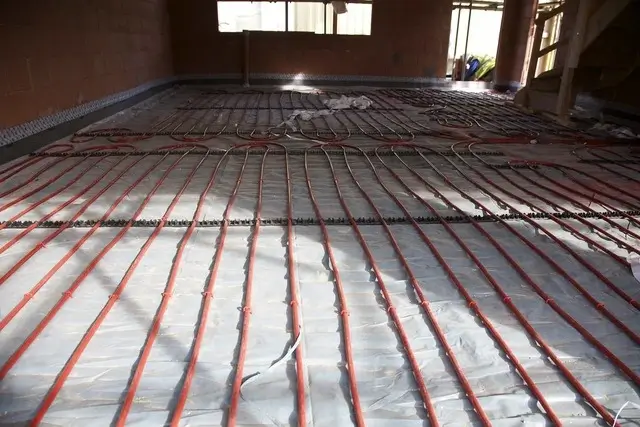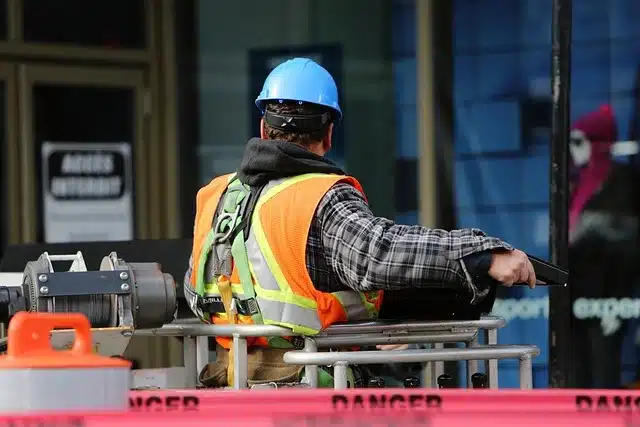Think about the last time you walked up to a building with cracked, uneven pavement. It doesn’t exactly inspire confidence, does it? Beyond the visual aspect, poorly maintained paving can lead to serious problems, from drainage issues that damage the foundation to trip hazards that pose safety risks. This isn’t just about aesthetics; it’s about long-term building health.
That said, this article will explore why investing in professional paving is a smart move for any property owner looking to secure their building’s future and avoid costly repairs down the line.
1. Durability and Longevity
One of the primary reasons professional paving is crucial is its contribution to the durability and longevity of a surface. When paving is done by a top paving contractor using high-quality materials, the resulting structure is far more resilient to the constant pressures of foot traffic, vehicular movement, and environmental factors. On the other hand, poorly installed paving can lead to premature wear, developing cracks, potholes, and surface degradation within a short period.
A well-constructed pavement should endure extreme weather conditions, from the scorching heat of summer to freezing winters, without breaking down quickly. Professional contractors use industry-tested techniques, such as proper compaction, base preparation, and seal coating, to ensure the surface remains intact for years.
2. Enhanced Safety and Compliance
Safety is a non-negotiable aspect of any building, and poorly paved surfaces pose significant hazards to pedestrians, drivers, and property owners. Uneven surfaces, cracks, and potholes can lead to accidents such as trips and falls, tire damage, or even collisions due to unexpected obstacles. These issues create inconvenience and can result in costly liabilities in the form of legal claims and medical expenses.
Professional paving contractors consider safety by ensuring smooth, level surfaces that minimize the risk of accidents. Additionally, they incorporate proper drainage solutions, reducing water pooling that can lead to slippery conditions. Ensuring compliance from the start prevents legal complications and additional costs associated with regulatory violations.
3. Increased Property Value and Curb Appeal
First impressions are powerful, and a building’s exterior significantly influences how it is perceived. Whether it’s a residential driveway, a commercial parking lot, or a walkway leading to a business entrance, a well-paved surface enhances the property’s overall aesthetics. Cracked, faded, or poorly maintained pavement can make even the most well-designed building appear neglected or outdated.
Professional paving ensures that surfaces look polished, well-maintained, and structurally sound, adding value to the property. For homeowners, this can mean an increased resale value, as potential buyers are more likely to be drawn to a property with a smooth, professionally finished driveway.
4. Cost-Effectiveness Over Time
While some may hesitate to invest in professional paving due to the upfront costs, this decision results in significant long-term savings. Low-quality paving materials or poorly executed installations often lead to frequent repairs, resurfacing, or even full replacements, all of which add up over time. Professional paving, however, ensures that the surface remains intact and resistant to damage for an extended period.
Moreover, high-quality paving materials, such as asphalt and concrete, are designed to endure heavy loads, fluctuating temperatures, and continuous exposure to the elements. Professional paving contractors also apply protective coatings and sealants to prevent water infiltration, one of the leading causes of pavement deterioration.
5. Better Drainage and Environmental Impact
Proper drainage is a crucial but often overlooked component of paving. Without adequate water management, surfaces can suffer from water pooling, erosion, and structural damage over time. Poorly drained pavements can develop cracks, potholes, and even foundational issues that compromise the integrity of the entire structure.
Professional paving contractors incorporate effective drainage solutions during installation, ensuring that water is directed away from the surface through proper grading and drainage systems. This prevents water accumulation, reduces flooding risks, and minimizes soil erosion around the paved area.
6. Compliance with Local Regulations
Building projects are subject to various regulations, and paving is no exception. Municipal and state authorities have specific requirements regarding pavement thickness, material selection, load-bearing capacity, and accessibility considerations. Failing to adhere to these regulations can result in costly fines, delays, or even legal disputes.
Professional paving contractors are well-versed in these regulations and ensure that all work complies with the necessary standards. They consider factors such as Americans with Disabilities Act (ADA) compliance for accessibility, proper zoning laws, and safety measures to prevent liabilities.
7. Efficient Project Completion
Time is valuable in any construction project, and professional paving contractors understand the importance of meeting deadlines. Unlike DIY paving or hiring unqualified workers, professionals have the necessary equipment, expertise, and workforce to complete projects efficiently and without unnecessary delays.
From site preparation to final finishing, experienced paving teams follow structured timelines, ensuring the project is completed as planned. This is especially critical for businesses where extended construction periods can disrupt operations and lead to financial losses.
Conclusion
While it may seem like an added expense, professional paving offers a significant return on investment in the long run. By preventing costly repairs, extending the lifespan of your building, and enhancing its curb appeal, quality paving contributes directly to its overall value. Professional paving is a proactive approach to building maintenance, ensuring a strong and stable future for your property.

